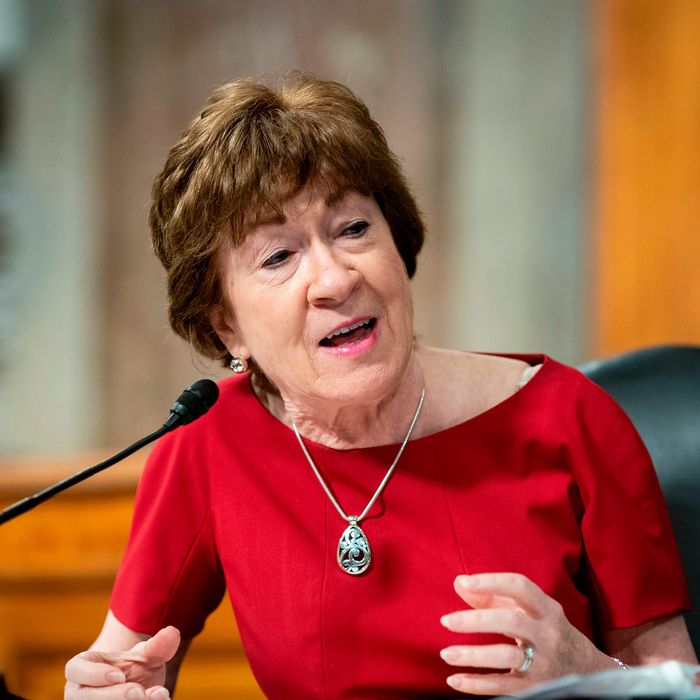
Every four years, if the two-major-party presidential contest looks close, alarums go up over the possibility that minor parties will tip the election one way or the other by siphoning off votes that might have otherwise gone to a truly viable candidate whose prospects are thereby “spoiled.” Indeed, when there are questions about ballot access for such parties (as there is this year thanks to disabilities associated with the COVID-19 pandemic), the major parties become very invested in helping or hindering them, depending on their presumed impact (viz. the many Republicans who seemed to be spending their spare time giving a hand to Kanye West).
Given the problem of minor-party spoilers, it’s not surprising to hear voices like that of my esteemed friend, Washington Post columnist Paul Waldman, asking them to go away, at least in terms of high-stakes presidential elections:
Like it or not, we have a winner-take-all system when it comes to elections for president, Congress, and many other offices. Third-party candidates won’t win, they can only siphon votes away from candidates who agree with them on some things but not everything. The idea that doing so forces major-party candidates to be more responsive to their ideas — one justification they offer — has precisely zero evidence to back it up.
While Waldman says he’s just worried about spoilers in presidential contests, his arguments really apply to all minor-party candidates except in those rare circumstances when they have a realistic chance of victory. Their supporters, he suggests, should learn to accept half-a-loaf, particularly if it means avoiding giving accidental help to candidates you really hate: “If you think that Trump is a monster, getting rid of him is a really good reason to vote for Biden, even if he’ll disappoint you in many ways.”
Unfortunately, we cannot peer into the soul of every actual or potential minor-party voter to determine motive, whether it’s influencing the major parties, casting a harmless “protest vote,” or ignorantly believing candidate viability claims. So we have to leave open the possibility that they have points of view that are simply not compatible with those of the major parties, and free speech considerations mean we need to let them express themselves, even if we believe they are “throwing away their votes” or helping elect monsters.
There is a way around this dilemma of encouraging “spoilers” or suppressing political speech: ranked-choice voting (sometimes referred to as instant runoff voting), which gives minor-party voters the option of a back-up vote (or votes) for more viable candidates until someone has achieved a majority. There is a major experiment in ranked-choice voting going on in Maine, where not that long ago independent candidates were regularly helping Republicans win office by pluralities. Unsurprisingly, Maine Republicans have been fighting the expansion of the system, which this November will include the presidential race. But it’s the crucial U.S. Senate race in which Democrat Sara Gideon is challenging Republican incumbent Susan Collins where ranked choice could have a very big impact, as Sam Brody reports:
It could be that the biggest complicating factor for the longtime senator’s re-election bid is not her relationship to President Donald Trump, or her famous stand for Brett Kavanaugh’s confirmation to the Supreme Court, but the way her state has decided to elect its leaders.
Joining Collins and Gideon on the U.S. Senate ballot in Maine are [Green Party candidate Lisa] Savage and Max Linn, a longshot conservative independent candidate who, during the first candidate debate last week, went viral as he plowed past moderator questions and declared “I have to be out of the box tonight.”
If no candidate clears 50 percent and Savage, who is running as a “Senator for People, Planet, and Peace,” is dropped in the third round, her supporters could easily put Gideon over the top. Savage’s campaign has openly encouraged its supporters to rank Gideon second—they tout a “#VoteBlueNumberTwo” social media slogan—and Savage herself says she plans to do the same.
There’s even a chance that ranked-choice voting will affect the presidential outcome in Maine under its system (unique to Maine and Nebraska) where each House district independently casts an electoral vote. In 2016, Hillary Clinton carried the 1st district with just under 54 percent of the vote, and Donald Trump won the 2nd district with 51 percent of the vote. A shift in the major-party vote in either district could trigger ranked-choice voting and perhaps a surprising outcome.
Most of the criticisms of ranked-choice voting (other than those of Maine Republicans who simply don’t like the results) are that it is sometimes oversold as a panacea for all the problems associated with the current party system, voter disengagement, and even ineffective government. But at a very basic level, it does preserve the right to support a minor party without accidentally supporting a major party you don’t even like.
"choice" - Google News
September 16, 2020 at 07:36AM
https://ift.tt/3hxGpTB
Ranked-Choice Voting Would Prevent Minor Party Spoilers - New York Magazine
"choice" - Google News
https://ift.tt/2WiOHpU
https://ift.tt/3c9nRHD
Bagikan Berita Ini














0 Response to "Ranked-Choice Voting Would Prevent Minor Party Spoilers - New York Magazine"
Post a Comment